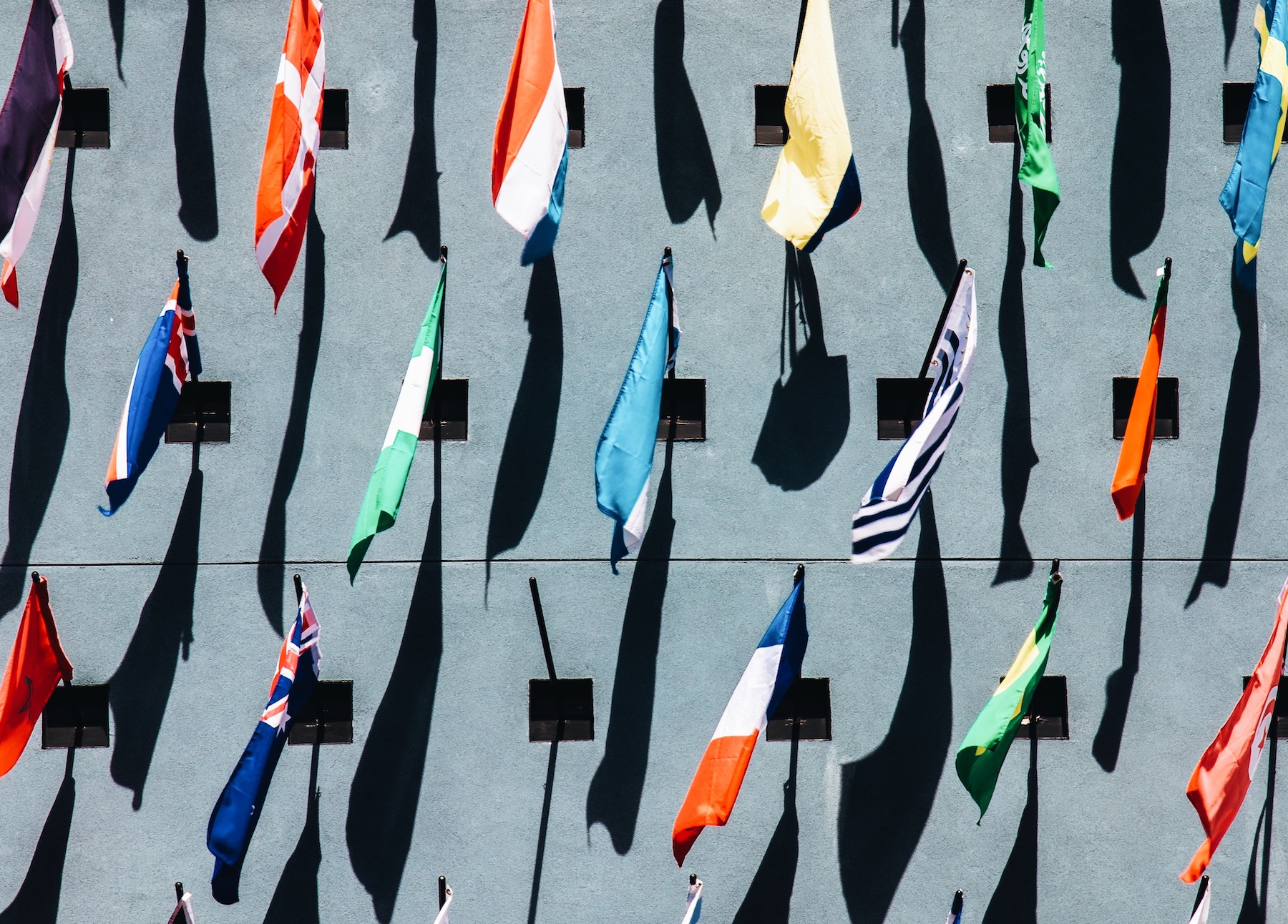
Ask any of our Sidewalk Club parents what keeps them in the city and many of them will cite the richness they find in their city’s ethnic and cultural diversity. Historically, people migrated from their homelands to a new country in search of a new life and greater opportunities. Expats and immigrants today are seeking the same and often settle in urban areas, creating ethnic diversity in our cities and becoming people who feel connected to more than one cultural identity.
We interviewed seven urban parents who are immigrants, expats, non-nationals, or who identify as bicultural or third culture kids. These parents have strong ties to their homeland or place of origin but currently live in another country or culture where they have also begun to feel at home and develop an identity (that mashup is their third culture).
Their stories are beautiful—a testament to strength and resiliency in overcoming racism and other hardships and ultimately thriving in a new home.
Steve Earle said it best:
Livin’ in a city of immigrants
I don’t need to go travelin’
Open my door and the world walks in
Livin’ in a city of immigrants
Ana Barbono
Philippines 🇵🇭 → New Zealand 🇳🇿
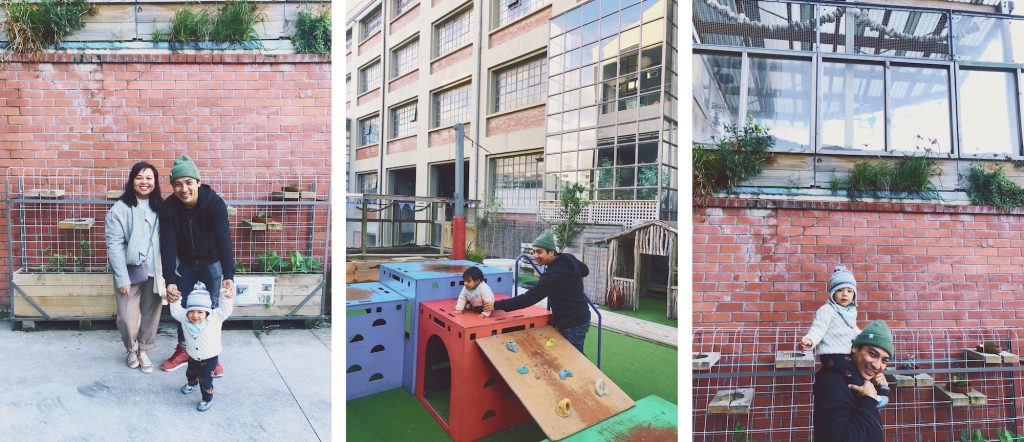
I was born in Quezon City, Manila, Philippines. When I was 8 years old, my mother, brother and I immigrated to Wellington, New Zealand. We’ve been here for over 16 years. I identify with my Filipino culture but I lack basic knowledge about it. Growing up, I was heavily influenced by Western culture—New Zealand, American, and British. I didn’t even realise that Filipino and Asian culture was mine to look up to or to cherish. I guess that explains why, over the years and without realising it, I began to lose my Filipino roots.
Growing up, my mum insisted on speaking English to us at home. The same was true of my Filipino friends—we all spoke English to each other. In the beginning, the concept of “celebrating our culture” wasn’t our priority—surviving, making money, finding a place to live, making friends—those were our priorities. Now I have a growing sense of pride in being Filipino and in being Asian.
I’ve been thinking a lot about what I want to pass on to my son, Aro, who is half-Filipino, half-Nepalese and born in New Zealand. I want him to feel pride in his heritage. The memories I cherish the most from the Philippines revolve around food so I’ve started introducing that to him—champurrado (chocolate rice) for breakfast, lumpia shanghai (pork spring rolls) with banana sauce for snacks, steamed red bean buns in his lunches, and lots of ube jam. It’s a small step but one that I’m determined to build on.
If I could give advice to someone going through what I did, I would say hold tight to your language. It will anchor you to your culture and your identity. I regret no longer being able to speak or understand Tagalog (the main language of the Philippines), and being unable to pass that to Aro. I think if I had kept hold of it or been taught to cherish it, I would feel less conflicted and more at home with my Filipino identity.
When people ask me things about the Philippines expecting me to be an expert, I internally roll my eyes. I am not here to explain Filipino culture. Chances are, I’m as clueless as you. If you’re truly curious, the onus is on you to educate yourself. I also don’t understand why people try to connect with me based on the colour of my skin (because that’s what it really is) and the fact that I was born somewhere else. Why not connect with me on things like my hobbies, my interests, my points of view? Try connecting with me like I was exactly the same colour as you. Radical idea, I know.
Ana on Instagram
Supriya Rock
Trichy, India 🇮🇳 → Chicago 🇺🇸
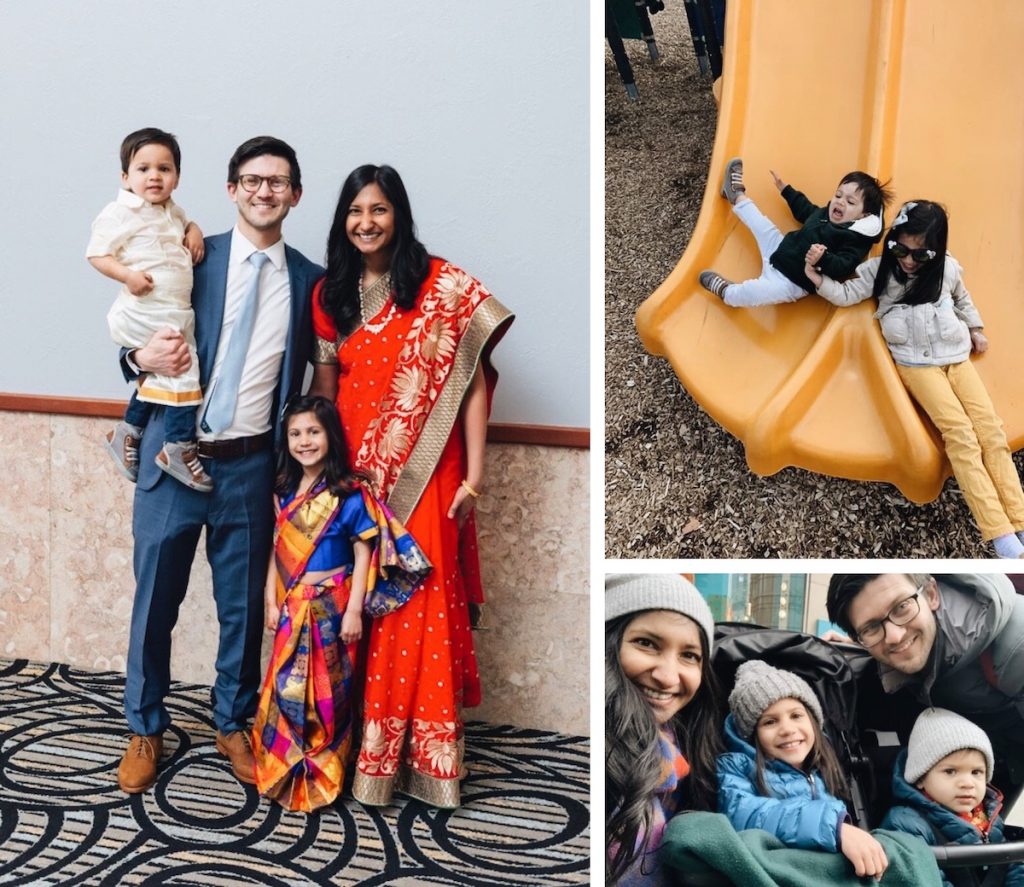
I was born in Trichy, India and came to Chicago when I was a little over a year old. I still live here in the Chicago area!
Growing up, I was one of the only non-white people in my school; as a result, I experienced a lot of microagressions and raced-based bullying. Early on in childhood I came to the conclusion that the only way to survive was to do everything I could to blend into white culture.
Now that I have kids of my own, I’m determined to help them have a different experience. I want them to have so much pride in their heritage and culture! I want them to see the beauty in their family’s history and in who they are. I want them to know that racism is real and painful and that some people experience it much more than I did.
I hope my children will want to unite with others who may also feel marginalized rather than try and blend in; to find space to be who they are immersed in multiple cultures.
Supriya on Instagram
Isabel Gonzalez-Smith
First Generation Mexican-American 🇲🇽🇺🇸
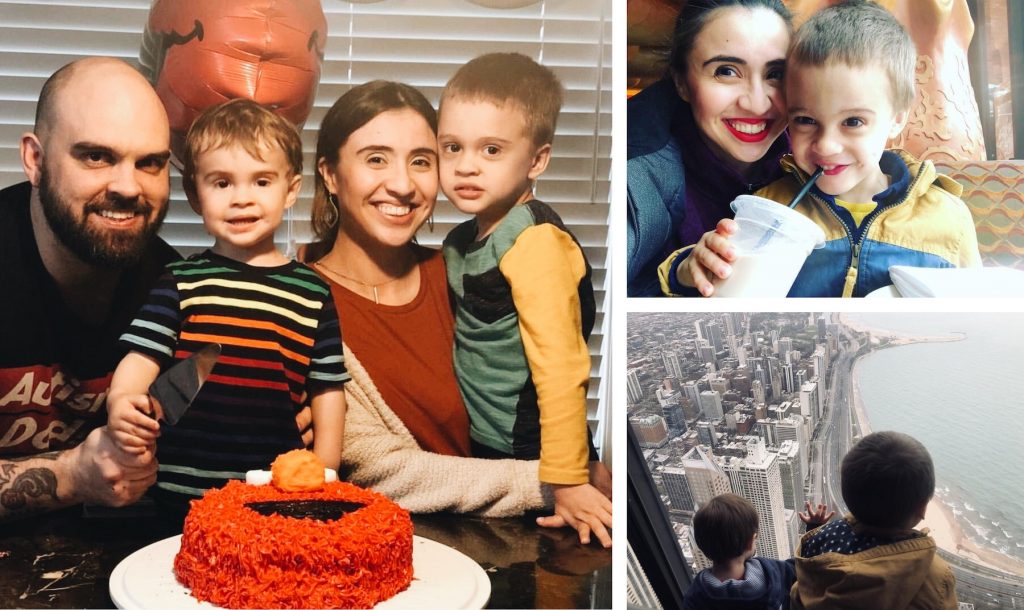
I am a first generation Mexican-American born and raised in Chicago. Today, I live just outside Chicago in a busy multigenerational home with my two adventurous sons, husband, parents, and one cat.
When my parents immigrated to the United States, they had to overcome a lot of discrimination in order to get ahead. My father took night lessons to learn English because he knew he had to invest in himself in order to have more opportunities. My mom believed we had to assimilate as a way to protect us and save us from discrimination. My parents did what they felt was best as they began their lives in Chicago and grew their family in a new country.
While pregnant with my first son, I became aware that I wanted to grow as a mother with other Latinas, to feel as if I was with my cousins and aunts. Raising my children with the wisdom and friendship of other Latinx families was something I knew I needed in my life, and certainly a sentiment that other women like me were experiencing. I founded Chicago Latina Moms in the summer of 2014 to make this dream come true.
Today, CLM is a community of over 1,600 moms who represent the diversity of Chicago. We collectively build connections and instill in our children a sense of confidence in their Latino identity. As a mother, I want my sons to grow up with the traditions, values, stories, and food that I grew up with so that these gifts that my parents gave me do not end with me but continue on for many generations to come. I strive to create a safe, unapologetic space for my children to feel seen and celebrated in every aspect of their identities.
Chicago Latina Moms on Facebook and Instagram
Cahleen Hudson
Los Angeles, California 🇺🇸 → Taipei, Taiwan 🇹🇼
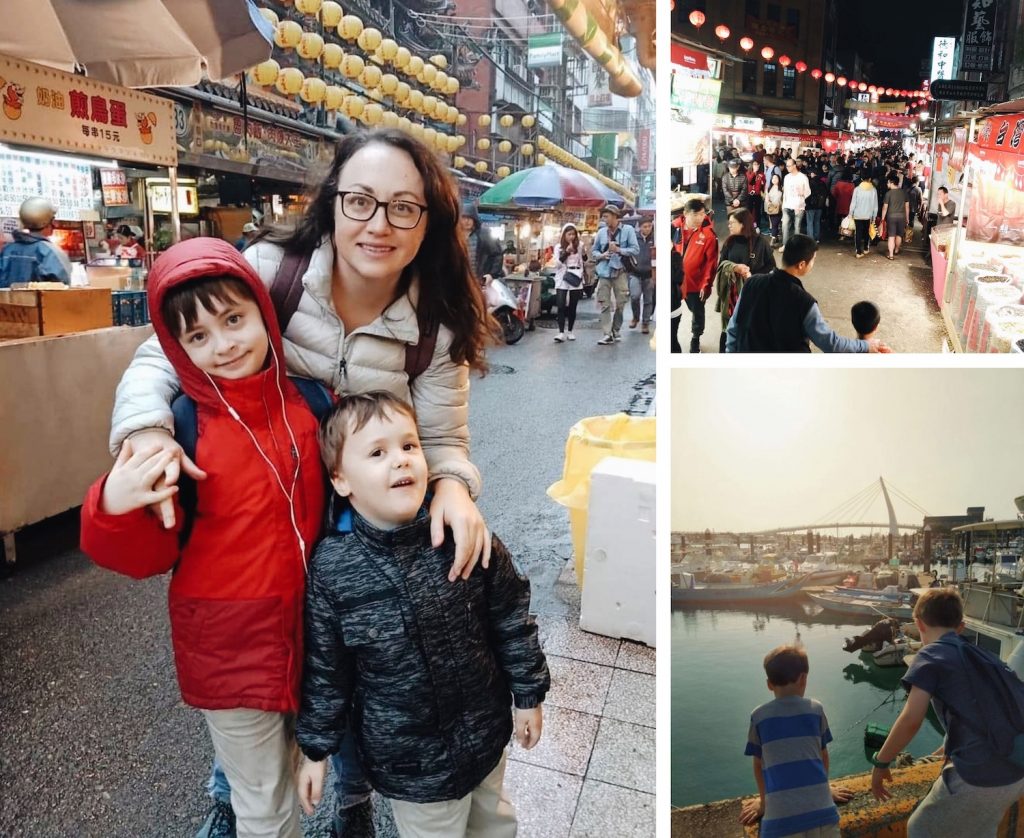
I was born and raised in the Long Beach, Southern California. My husband and I moved to Taipei, Taiwan as newlyweds in 2006. We’ve been here ever since and have added two little boys to the mix! We love and appreciate many aspects of the local culture in Taiwan and have incorporated much of it into our own lifestyle, but still see ourselves as American—I guess we always will be! I consider the expat community (a mix of many nationalities and cultures) in Taiwan my “tribe” and love my Taiwanese friends as well.
I read a ton as a kid (I was the kid with a book hidden in her math book at the back of the class) and was always seeking out stories about other places and cultures. Living in the LA area gave me even more opportunities to meet people from all over the world. Really, I was just endlessly fascinated and curious about other ways of living and moving in the world. I loved talking with the international students on campus and learning about their homes, as well as smelling the different spices coming from their kitchens.
We love the vibrant city life in Taipei, the easy access to nature, the night markets, the MRT, and the universal healthcare (as Americans we have a an extra appreciation for this). We feel settled here, but I’m still faced with lots of newness and surprise most days, which keeps life interesting for me. If we ever move back to America I’d need to live in a place that brings lots of different people from all over the world together—life is so much fun that way!
I’m so glad to have found the Sidewalk Club; before I did my Instagram feed was full of kids rolling in mud and playing with sticks. I think that’s so awesome, but I felt guilty because I can’t just open my door and tell my kids to go play in the wilderness (they would get hit by a moped). I’m glad there’s a place for us to celebrate the awesome parts of city living with kids! 😃
Cahleen on Instagram
Ndunge Marquardt
Chicago 🇺🇸 → Barcelona, Spain 🇪🇸
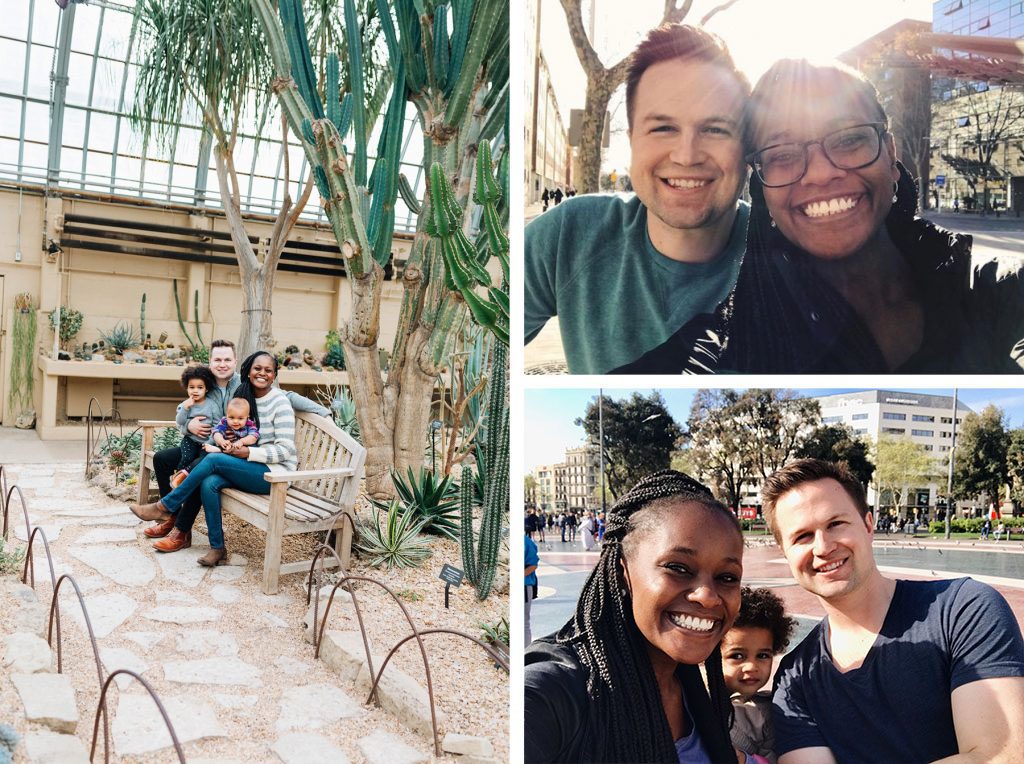
I was born in Kenya, raised in the Eastern US and Midwest, and have spent most of my adulthood in the city of Chicago. My husband is a Chicagoland native; we met and started a family in Chicago. We recently moved to Barcelona, Spain with our two kids.
Growing up as an immigrant and third culture kid I really wanted more than anything to assimilate to the majority culture. I just wanted to look and sound like my friends. That could be partly due to my personality, but it’s something that I think many TCKs can relate to. I liked Kenyan culture and I liked hearing stories about Kenya. But when I was at school or with friends, I wanted to fit in. Nowadays I accept that I don’t neatly fit into American or Kenyan culture and that’s okay! I really appreciate the fact that I was exposed to multiple cultures throughout my upbringing and I want that for my children. I want them to learn new languages, try new foods, and see differences as valuable.
Previous experiences with immigration, travel, and cross-cultural living have prepared us for living in Barcelona. I immigrated with my family to the US at a young age, lived in Kenya during college, and in Venezuela a year after graduating. Those significant periods of transition and cross-cultural living gave me valuable experiences and shaped my desires to be regularly exposed to different cultures and experiences. Prior to moving to Barcelona, my husband had only lived in Illinois but had done a lot of international travel. He has visited over 20 countries and has an adventurous spirit. He is eager to learn and immerse himself in new cultures.
The desire to live and even raise kids overseas is something we shared early on in our relationship. We want our children to be exposed to new cultures, languages, and traditions. We want them to have an openness to new experiences and humility towards the life experiences of others. We think cities provide such a great training ground for that and an international city such as Barcelona is a dream come true! We are still trying to figure out what traditions we will continue from home and what traditions we will adopt from our new country.
To someone living a similar story as mine, I would say, “Let’s get coffee!” But seriously, it’s something that I wish was talked about more. I think embracing and sharing your own story is such a good thing. There is purpose, intention, and beauty in the life you’ve been given. Be open to your own experience and learning from the experiences of others.
Ndunge on Instagram
Deanna Kozarov
First generation Macedonian-American 🇲🇰🇺🇸
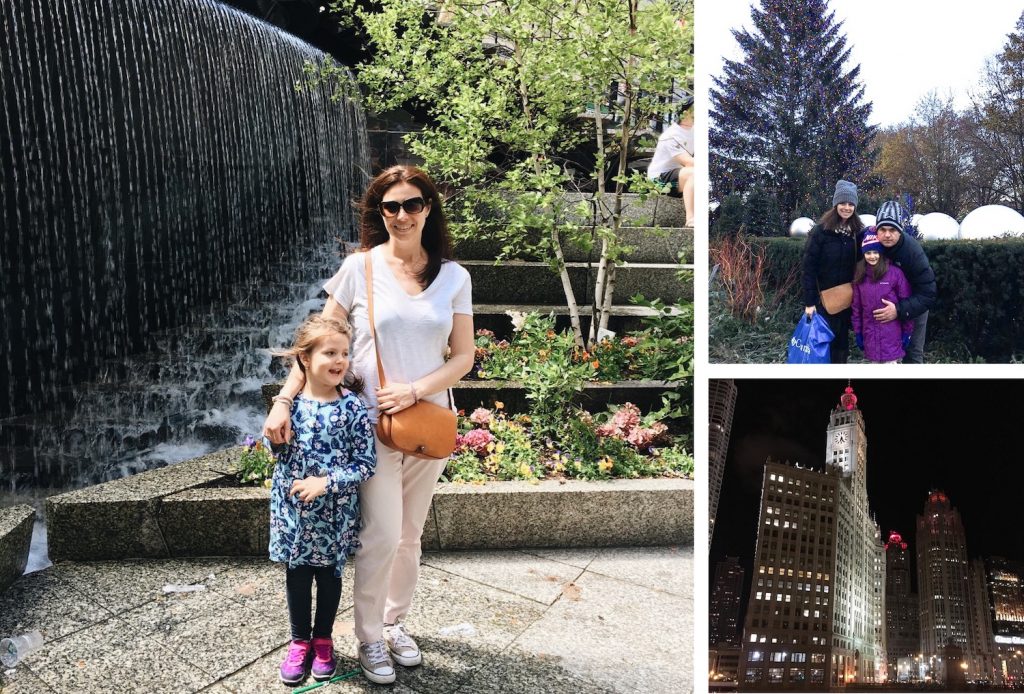
My mother came to the United States when she was 12 years old, and my dad came in his early twenties. Both of them immigrated from a small country called Macedonia (part of Yugoslavia at the time). My father settled in Gary, Indiana, a smaller city that neighbors Chicago, and my mother did too as she already had family living there. I was born in Northern Indiana and currently live in Chicago.
Growing up, English was spoken as second language as my dad preferred Macedonian. That all changed in kindergarten when my mother received a letter from my school advising that they start speaking more English at home. My brother and began taking ESL classes in kindergarten and first grade.
When I was in my elementary and middle school years I did not understand how important my culture was—I wanted to be as “American” as possible. I wasn’t allowed to do some things like having a sleepover or going to the mall by myself. And going to dances and having a boyfriend was out of the question! “This is what Americans do, but not us,” my parents would say. Other times I was judged by Macedonian-American kids for not being “Macedonian enough” because we didn’t speak as much Macedonian at home, didn’t visit the motherland as often and didn’t have name days (a celebration on a day of the year associated with your birth name, especially if you were named after a saint).
As I entered High School I realized how important (and cool!) it was to embrace my heritage so I started hanging out with more friends that were from Macedonia and the Balkans (other foreigners). I joined a Macedonian folk dance ensemble and made even more friends who were embracing both cultures. I later married a Macedonian—my husband came to the states as a teenager and settled outside of Chicago too.
If I could give some advice to someone in a similar situation, I’d say embrace both sides of yourself as much as you can, but remember that you’re unique. To others, I’d say that bicultural immigrants are not one-dimensional—embrace our multiple sides! We may do things differently than your family, but that’s not a bad thing. There are also cultures within a culture, so don’t assume we all act and think the same!
My daughter is six years old, speaks English and Macedonian, and we still keep in touch with her grandparents and other family members back home. We try to go back every two years to bask in the rich and beautiful culture. I hope that my daughter is able to take in both cultures and can remember where we came from. I want her to be proud of both sides of her heritage and respect people of all cultures, races, and ethnicities.
Deanna on Instagram
Erin Hartwig
United Kingdom 🇬🇧 → Brooklyn, New York 🇺🇸
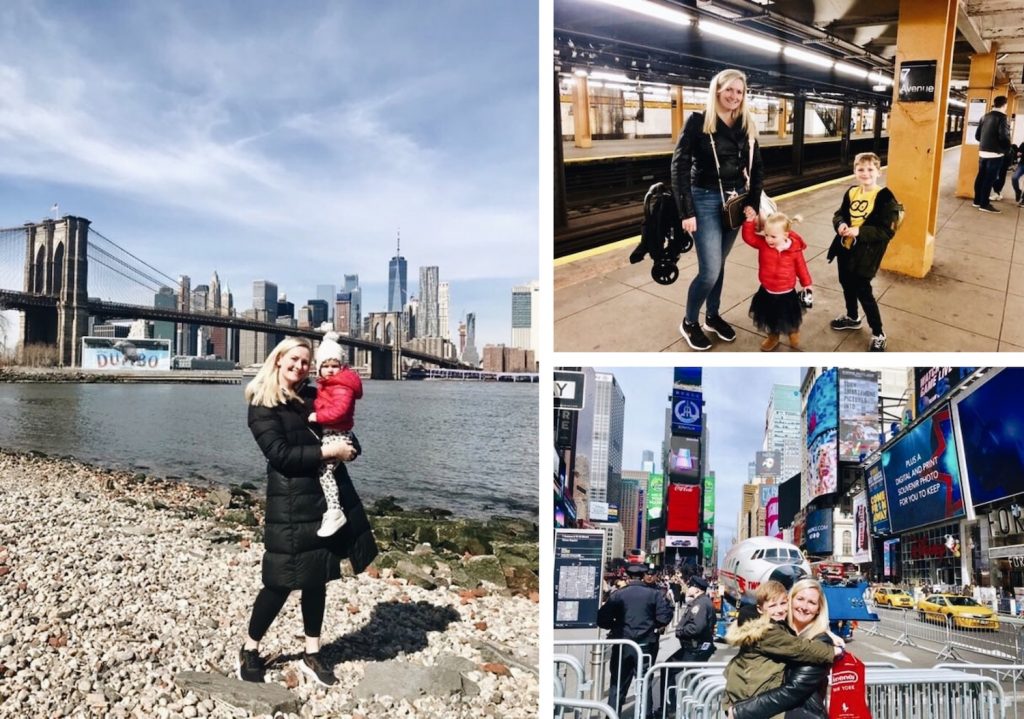
In 2015, I moved from the United Kingdom to Brooklyn, New York with my family for my husband’s work. My son was three years old at the time, and my daughter was born here in the US. She has joint US and UK citizenship and the rest of us are UK citizens on visas.
We are very lucky in that we speak the same language and any cultural differences are relatively small! We’ve been able to adapt well to our new home.
The biggest difference for us is an urban lifestyle. In the UK we had a big house with a garden and driveway and now (for a lot more money) we have a small apartment, the park is our garden, and we park on the street!
It was strange to move from a small-town rural setting in the English countryside to one of the largest cities in the world and experience that initial feeling of isolation despite being surrounded by so many people. At first, it was hard to meet other people and make friends. If you’ve ever survived a NYC winter you’ll understand what I mean!
My advice is to use all the resources you can to get out and meet people. It can seem like a struggle some days (especially with little ones in tow), but it always feels worth it afterwards. I’ve met so many people through social media who are still my friends today. Instagram is a great way to see what events or mommy and me classes are on in your new area.
We are so lucky that the children can FaceTime regularly with family back home in the UK. That connection helps keep the relationships strong; I can’t imagine how hard this would have been a generation ago without the internet!
Erin on Instagram
